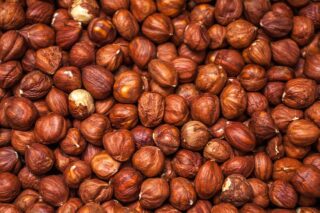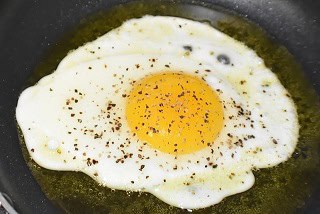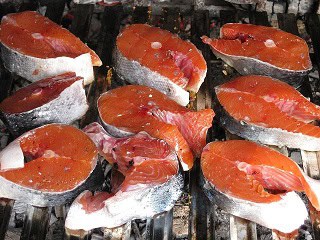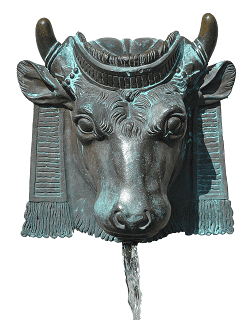Introduction

Have you ever found yourself reaching for a protein bar or shake when you need a quick energy boost? You’re not alone. Many people think that because protein is such a vital nutrient, it must be a great source of energy, too. But here’s the thing—while protein is absolutely essential for our bodies, it doesn’t quite work like carbohydrates or fats when it comes to fueling your day.
Sure, protein is crucial for building muscles, repairing tissues, and even producing some hormones, but if you’re looking for that quick burst of energy to power through a workout or get through the afternoon slump, protein might not be your best bet. Instead, it plays a different, though equally important, role in keeping you energized over the long haul.
So, will protein give you energy? Well, the answer isn’t as straightforward as a simple yes or no. Let’s dive into how protein fits into the energy equation and when it actually can help keep you going.
Understanding Macronutrients and Energy

Before we dive into whether protein gives you energy, let’s take a step back and talk about the big three: carbohydrates, fats, and proteins. These are your macronutrients—fancy word for the nutrients you need in larger amounts. Each one has a different job, and understanding these roles is key to figuring out how your body gets its energy.
First up, carbohydrates. They’re like the body’s go-to fuel source. When you eat carbs, your body breaks them down into glucose, which is basically sugar. This glucose is what your body loves to use for quick energy—whether you’re running a marathon or just running late.
Then, we have fats. Now, fats sometimes get a bad rap, but they’re actually super important. They’re like the slow-burning logs on the fire of your metabolism. Fats provide a more sustained energy source, perfect for activities that last longer, like a day of hiking or just getting through a long workday.
Finally, there’s protein. Most of us know that protein is essential for building and repairing muscles, but here’s the catch: protein isn’t your body’s first choice for energy. It’s more like the body’s backup plan. Protein’s main gig is to help build and repair tissues, make enzymes and hormones, and support your immune system. So while it can be used for energy, it’s really not its primary function.
When your body needs energy, it typically turns to carbs and fats first. These are easier to convert into fuel, giving you that energy boost you need. Protein, on the other hand, is a bit more complex to break down, and your body would rather save it for those other important tasks like muscle repair and keeping your systems running smoothly.
So, to sum it up: while protein is essential for your body, it’s not usually the go-to when you need a quick energy fix. But don’t worry, protein still plays a vital role in keeping you energized in the long run—just not in the way you might expect.
Can Protein Provide Energy?

So, we’ve established that protein isn’t your body’s first pick when it needs a quick energy boost. But does that mean it can never give you energy? Well, not exactly. There are a few specific situations where your body might call on protein to step in as an energy source—kind of like when the main players are out, and the backup needs to jump in.
When Protein Steps In
1. Starvation or Fasting:
When your body runs out of its preferred energy sources—like during prolonged fasting or starvation—it starts getting creative. If carbs and fats are nowhere to be found, your body can start breaking down muscle tissue to get amino acids from protein. These amino acids can then be converted into glucose through a process called gluconeogenesis. It’s not ideal, but it works in a pinch. Essentially, your body is using protein to make sure it has enough energy to keep running, even if it means sacrificing some muscle.
2. Low-Carb or Ketogenic Diets:
If you’ve ever tried a low-carb or ketogenic diet, you know that cutting carbs forces your body to find other ways to keep your energy up. In these cases, your body starts relying more on fats for energy (that’s what ketosis is all about), but protein can also play a role. Similar to the fasting scenario, your body might convert protein into glucose to maintain blood sugar levels. So, while you might not be loading up on bread or pasta, protein can help fill in the gaps when carbs are scarce.
3. Prolonged Exercise:
Ever been on a long run or bike ride and hit that dreaded “wall”? That’s when your glycogen (the stored form of glucose) starts running low, and your body needs to find another fuel source. In these moments, if carbs and fats are running low, your body may tap into protein—though it’s usually a last resort. It’s not the most efficient way to keep you going, but in endurance events, every bit of energy helps.
Why Protein Isn’t the Ideal Energy Source
Now, even though your body can use protein for energy, it’s not exactly thrilled about it. Why? Because turning protein into energy is a bit of a hassle. It’s a more complex process that doesn’t yield as much energy as carbs or fats. Plus, when your body breaks down protein for energy, it’s often taking it from muscle tissue, which isn’t great if you’re trying to maintain strength and endurance.
On top of that, using protein for energy can create extra nitrogen waste in your body. This can put more strain on your kidneys, which have to work harder to get rid of it. So, while it’s possible to get energy from protein, it’s not the most efficient or healthy way to keep your energy levels up in the long term.
In short, protein can provide energy, but only under certain conditions—like when you’re really low on carbs or fats, or pushing your body to the limit. But for everyday energy needs, you’re better off sticking with carbs and fats as your main fuel sources and letting protein do what it does best: build and repair your body.
How Protein Affects Energy Levels
Now that we’ve covered how protein can provide energy in specific situations, let’s talk about how it actually impacts your energy levels on a day-to-day basis. Spoiler alert: even though protein isn’t your body’s first choice for quick energy, it still plays a key role in helping you feel energized and strong throughout the day—but more in an indirect way.
Indirect Contributions to Energy
1. Muscle Maintenance and Recovery:
Think of your muscles as your body’s engine. If your engine is well-maintained, you’re going to run smoothly and feel more energetic. Protein is like the mechanic that keeps your muscles in top shape. When you consume enough protein, your body can repair and build muscle tissue after a workout or just from daily wear and tear. This helps you stay strong and active, which naturally boosts your overall energy levels. So, while protein isn’t giving you energy directly, it helps keep your muscles ready to power you through whatever the day throws at you.
2. Hormone Production:
Protein is also a key player in making hormones that regulate your energy levels. For example, hormones like insulin and glucagon, which manage your blood sugar levels, are made from proteins. If these hormones are working properly, your body can maintain steady energy levels throughout the day. On the flip side, when your protein intake is too low, it can mess with your hormone balance, leading to energy crashes or sluggishness. So, getting enough protein helps keep your energy levels steady by supporting these behind-the-scenes processes.
3. Satiety and Blood Sugar Control:
Ever notice how after eating a protein-rich meal, you feel full and satisfied for longer? That’s because protein helps stabilize your blood sugar levels, preventing those mid-afternoon energy crashes. Unlike carbs, which can spike your blood sugar quickly and then leave you feeling drained, protein digests more slowly, giving you a more gradual and sustained release of energy. This is why having protein with your meals can help you avoid those dreaded energy dips and keep you feeling energized throughout the day.
The Thermic Effect of Food (TEF)
Here’s a fun fact: your body actually burns calories while digesting food. This is known as the Thermic Effect of Food (TEF), and protein has the highest TEF of all the macronutrients. In other words, your body uses more energy to digest protein than it does for carbs or fats. While this isn’t going to make a huge difference in your energy levels, every little bit helps. By increasing your energy expenditure slightly, protein can contribute to a more revved-up metabolism, which can help you feel more energetic overall.
Conclusion
So, while protein isn’t your body’s go-to for quick energy, it still plays an essential role in keeping you feeling strong and steady. Whether it’s maintaining your muscles, regulating your hormones, or keeping your blood sugar in check, protein helps set the stage for sustained energy throughout the day. It’s not about the immediate boost, but rather the long-term benefits that help you stay on top of your game.
Practical Considerations for Protein Intake

Now that we’ve explored how protein influences your energy levels, you might be wondering: How much protein do I actually need? And when should I be eating it? Let’s break it down in a way that makes sense for your everyday life.
Daily Protein Needs
First things first—how much protein do you need? Well, that depends on a few factors, like your age, activity level, and overall health goals. For most people, the general recommendation is around 0.8 grams of protein per kilogram of body weight. But if you’re super active, trying to build muscle, or recovering from an injury, you might need more—think closer to 1.2 to 2.0 grams per kilogram.
So, for example, if you weigh 70 kilograms (about 154 pounds), you’d aim for at least 56 grams of protein a day. That might sound like a lot, but when you break it down into meals and snacks, it’s pretty doable. Just remember, it’s about finding a balance that works for you—too much or too little can both have downsides.
Best Sources of Protein
Not all proteins are created equal, so let’s talk about where to get your protein from. The best sources are those that provide all the essential amino acids your body needs. These are called “complete proteins,” and you’ll find them in animal products like lean meats, fish, eggs, and dairy. If you’re more into plant-based options, don’t worry—there are plenty of great choices too, like quinoa, tofu, lentils, and beans. You might need to mix and match a bit more to get all those amino acids, but it’s totally doable.
The key here is variety. Eating a range of protein sources not only helps you get all the nutrients you need, but it also keeps your meals interesting. After all, no one wants to eat the same chicken breast every day, right?
Timing of Protein Intake
When it comes to protein, timing can make a difference, especially if you’re active. Ideally, you should spread your protein intake throughout the day rather than loading up on it all at once. This helps your body make the most of it, especially when it comes to muscle repair and growth.
For example, having some protein with breakfast can set you up for a more energized morning, while a protein-packed snack post-workout can help your muscles recover. And don’t forget dinner—having a good portion of protein in the evening can aid in overnight recovery, so you wake up feeling ready to tackle the day.
If you’re working out, aim to get some protein within about 30 minutes to an hour after your session. This is when your muscles are most eager for those building blocks, helping you recover faster and perform better next time.
Balance is Key
While protein is important, remember that it’s just one part of the puzzle. You still need a good balance of carbs and fats to keep your energy levels up and your body functioning well. Think of it like this: protein is the structure, carbs are the fuel, and fats are the long-lasting energy reserve. Together, they help you stay fueled, focused, and strong.
In a nutshell, getting enough protein—and getting it at the right times—can help you maintain energy, support your muscles, and keep your body running smoothly. Just make sure you’re not overloading on protein at the expense of other nutrients. A well-rounded diet is always your best bet for feeling your best every day.
Common Myths and Misconceptions About Protein and Energy

When it comes to protein, there’s a lot of buzz out there. Protein bars, shakes, and powders are everywhere, and it’s easy to think that more protein equals more energy. But like with most things in nutrition, the reality is a bit more nuanced. Let’s clear up some of the biggest myths and misconceptions about protein and energy, so you can make smarter choices without falling for the hype.
Myth 1: Protein Bars and Shakes Provide Instant Energy
You’ve probably seen those ads promising that a protein bar or shake will give you a quick energy boost when you need it most. While these products can be convenient, they’re not exactly the magic energy fix they’re made out to be. Sure, some protein bars contain carbs and sugars that might give you a temporary pick-me-up, but that boost is usually from the sugar, not the protein itself.
In reality, protein shakes and bars are better suited for muscle recovery after a workout or for keeping you full between meals. If you’re feeling sluggish and need immediate energy, you’re better off reaching for something with a good mix of carbs and a bit of protein—like a banana with peanut butter.
Myth 2: More Protein Equals More Energy
It’s easy to fall into the trap of thinking that if some protein is good, more must be better, especially when it comes to energy. But the truth is, your body can only use so much protein at a time. Once your protein needs are met, the extra doesn’t get turned into more energy—it might just get stored as fat or eliminated by your body.
Plus, if you’re focusing too much on protein, you might end up neglecting other important nutrients, like carbs, which are your body’s preferred energy source. Balance is key. You need a mix of protein, carbs, and fats to keep your energy levels steady throughout the day.
Myth 3: Protein is the Best Pre-Workout Nutrient
If you’ve ever been told to eat a protein-heavy snack before hitting the gym, you’re not alone. But here’s the thing: while protein is great for muscle repair and recovery, it’s not the best option for quick energy before a workout. Carbs, on the other hand, are where it’s at for pre-workout fuel.
Carbohydrates break down faster than protein, giving your body the quick energy it needs to power through your workout. A combination of carbs with a little protein (think a slice of whole-grain toast with peanut butter or a small yogurt with fruit) can be ideal, giving you both quick energy and some staying power. Save the big protein intake for after your workout when your muscles really need it.
Myth 4: Protein Will Make You Bulky
This one is especially common, particularly among women. Many people worry that if they eat too much protein or start using protein supplements, they’ll suddenly bulk up like a bodybuilder. But bulking up isn’t just about protein—it takes a lot of intense training and, often, a surplus of calories.
For most people, eating more protein will help you build lean muscle, improve your recovery, and stay strong, but it won’t make you look like a bodybuilder overnight. In fact, getting enough protein can help you achieve a toned, fit appearance rather than bulkiness.
To Sum up the Myths
So, there you have it—protein is essential, but it’s not the miracle energy booster it’s sometimes made out to be. While it plays a crucial role in muscle maintenance, recovery, and overall health, protein should be part of a balanced diet that includes enough carbs and fats to keep your energy levels where you want them. By avoiding these common myths, you can use protein more effectively to support your health and fitness goals without falling for the hype.
Conclusion
So, will protein give you energy? The short answer is: kind of, but not in the way you might think. Protein is a powerhouse when it comes to building and repairing your body, keeping your muscles strong, and helping you stay full and satisfied. But when it comes to quick energy, it’s not the star of the show—carbs and fats are your go-to fuels for that.
That doesn’t mean protein isn’t important—it plays a huge role in keeping you energized and feeling good in the long run. Whether it’s supporting your muscles, helping with hormone regulation, or just making sure you don’t crash between meals, protein is essential. The key is to include it as part of a balanced diet, alongside carbs and fats, to keep your body running smoothly.
So next time you’re looking for a boost, remember that while protein can help you stay strong and steady, it’s the balance of all your nutrients that really keeps your energy levels in check. And if you’re ever in doubt, don’t hesitate to consult a nutritionist or dietitian—they can help you find the perfect balance for your individual needs.